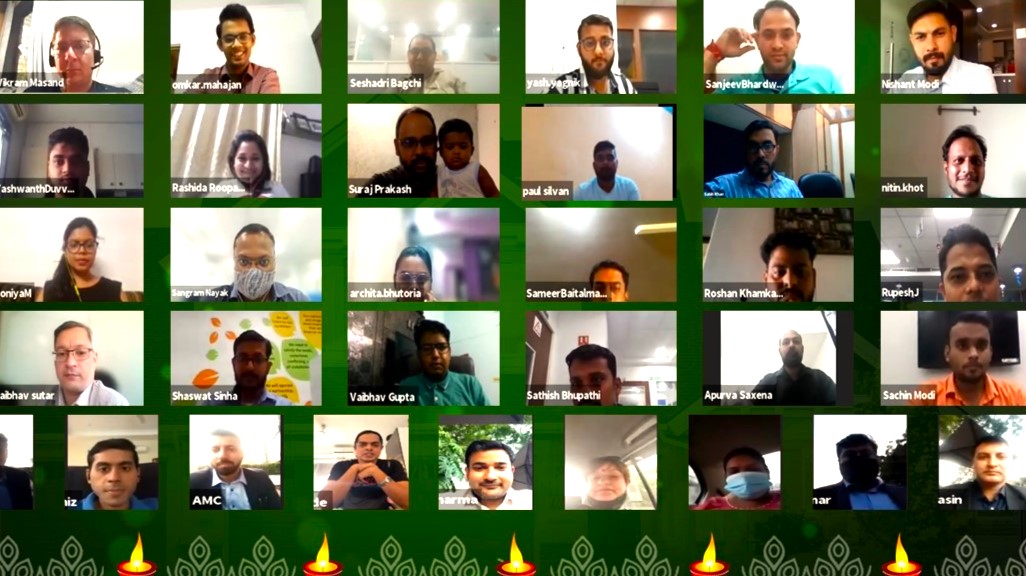The Benefits of Virtual Team Building Activities for Remote Teams

In today’s rapidly evolving business landscape, remote work has become the new norm. With the advent of technology and the need for flexibility, companies are increasingly embracing remote work arrangements.
While remote work offers numerous advantages, it also presents unique challenges, one of which is maintaining team cohesion and morale. This is where virtual team building activities come into play, offering a multitude of benefits for remote teams.
What is Virtual Team Building?
Virtual team building is like playing fun games or doing activities online with your work colleagues when you can’t be in the same place. It’s a way to make your team feel more like friends, even if you’re working from different places, by participating in fun activities together on the internet. This helps everyone work better together and feel more connected, even if they can’t meet in person.
Benefits of Virtual Team Building Activities for Remote Teams
1. Fostering Stronger Team Bonds
One of the most significant advantages of virtual team building activities is their ability to foster stronger team bonds. When team members are scattered across different locations, it can be challenging to build the same level of camaraderie and trust that
naturally develops in a traditional office setting.
However, well-designed virtual team building training programs create opportunities for team members to connect on a personal level, building relationships that extend beyond work tasks.
2. Enhancing Communication Skills
Effective communication is the backbone of any successful team. Virtual team building activities often require team members to communicate more effectively, whether through video conferences, chats, or collaboration on virtual projects.
By participating in these activities, remote teams can improve their communication skills, ensuring that information flows seamlessly and misunderstandings are minimized.
3. Boosting Morale and Engagement
Remote work can sometimes lead to feelings of isolation and disengagement. Virtual team building activities inject fun and excitement into the remote work environment, boosting team morale and overall engagement. Engaged employees are more productive, creative, and satisfied, which ultimately benefits the organization as a whole.
4. Improving Problem-Solving and Collaboration
Virtual team building activities frequently involve problem-solving tasks and collaboration challenges. These activities require participants to think critically, work together, and adapt to changing circumstances. As a result, remote teams can develop valuable problem-solving and collaboration skills that directly translate into improved work performance.
5. Alleviating Stress and Burnout
Remote work can blur the lines between work and personal life, making it challenging for employees to switch off and unwind. Virtual team building activities provide an opportunity for team members to relax, have fun, and temporarily shift their focus away from work-related stressors. This can help alleviate burnout and improve overall mental well-being.
6. Promoting Inclusivity and Diversity
Virtual team building activities can be tailored to be inclusive and diverse, accommodating various interests, abilities, and backgrounds. This inclusivity promotes a sense of belonging among team members, regardless of their location or personal characteristics. In turn, this diversity can lead to a richer exchange of ideas and perspectives within the team.
7. Encouraging Continuous Learning
Many virtual team-building activities incorporate elements of learning and personal development. Whether it’s solving puzzles, participating in virtual escape rooms, or attending team-building workshops, team members can acquire new skills and knowledge while having fun. This continuous learning mindset can translate into improved performance in their remote roles.
In conclusion, virtual team building activities offer a multitude of benefits for remote teams. They help create stronger team bonds, enhance communication, boost morale, improve problem-solving and collaboration, alleviate stress, promote inclusivity, and encourage continuous learning. By investing in virtual team building activities, organizations can nurture a more cohesive and productive remote workforce, ultimately driving success in an increasingly remote-oriented world.




